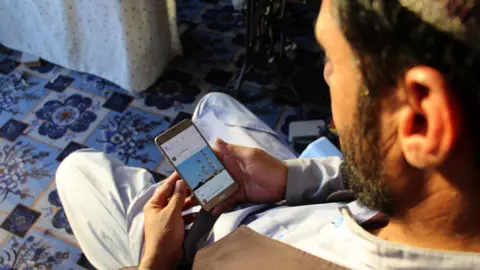Taliban Government Imposes Social Media Restrictions in Afghanistan
 QUDRATULLAH RAZWAN/EPA/Shutterstock
QUDRATULLAH RAZWAN/EPA/ShutterstockIn a notable development, the Taliban government has implemented restrictions on social media content, impacting platforms such as Facebook, Instagram, and X. These measures have created a significant stir among users, as many have reported that videos and posts on their accounts are no longer accessible.
This change follows a recent country-wide internet blackout that lasted two days, causing disruption to businesses and raising concerns about the rights of women and children. Users across Afghanistan have expressed their frustrations with these limitations, especially among women who see the internet as a crucial connection to the outside world, especially in the wake of policies restricting their freedom.
Despite the Taliban’s lack of a formal statement detailing the nature or reasoning behind these restrictions, a source from the Ministry of Communications and Information Technology acknowledged that filtering controls have been introduced for specific content types. Cybersecurity organizations like NetBlocks have confirmed that these restrictions align with an intentional pattern.
As internet speeds suffer and accessibility continues to dwindle, citizens are caught in a dire situation where even basic social media usage becomes fraught with challenges. Reports suggest that in some regions, users can open Facebook but are limited in their ability to view photos or videos.
Amid growing concerns and discontent, experts are calling attention to the broader implications these internet controls have on civil liberties and freedoms of expression, which have been shrinking since the Taliban's takeover of Afghanistan.



















